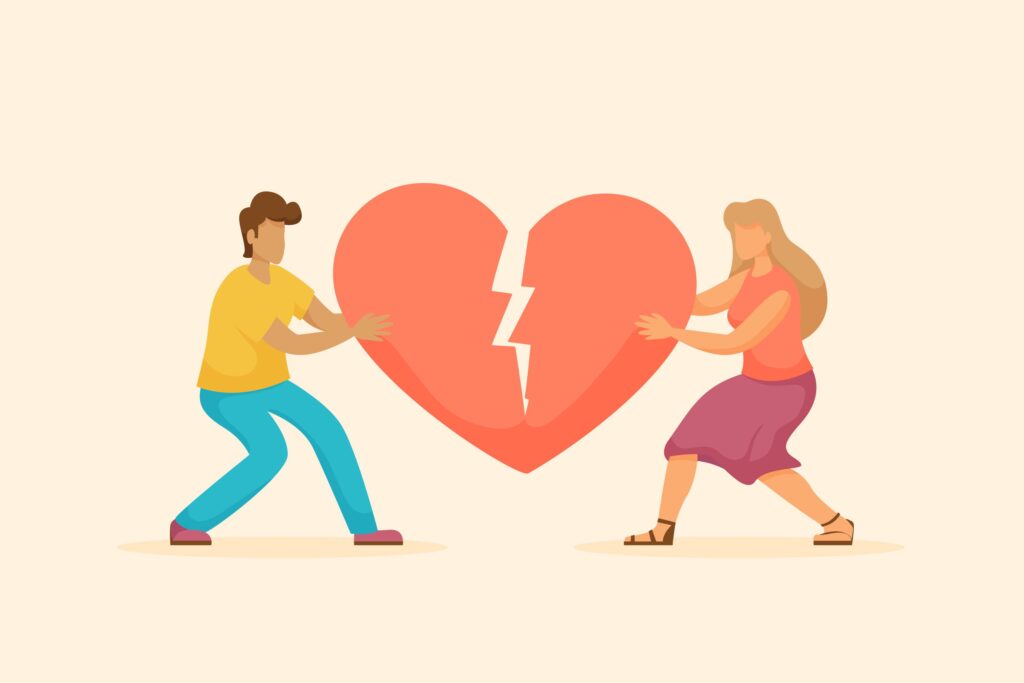Divorce is often one of the most challenging and life-altering events an individual can experience. While it brings about a formal end to a marriage, the emotional, financial, and social fallout can be long-lasting and profound. For many, the pressing question is: Who suffers more after a divorce?

Emotional Impact of Divorce on Men vs. Women
When it comes to the emotional toll of divorce, the effects are often felt deeply by both men and women. However, research shows that the way men and women process and deal with their emotions post-divorce can differ significantly. Let’s explore these differences and understand who suffers more emotionally after a divorce.
How Divorce Affects Men Emotionally
For many men, the emotional consequences of divorce can be overwhelming, particularly because societal norms often discourage men from expressing vulnerability.
- Loneliness and Isolation: A major issue men face post-divorce is loneliness. Many men find themselves isolated, especially if they relied heavily on their spouse for emotional support. According to a study by the American Sociological Association, men tend to lose more social connections after divorce than women, which can exacerbate feelings of loneliness.
- Mental Health Issues: Several studies suggest that men are more prone to experiencing severe emotional distress after divorce. In fact, men are statistically more likely to suffer from depression and anxiety than women. This might be due in part to the fact that men are less likely to seek help, such as therapy or counseling, after a divorce.
- Loss of Routine and Identity: Divorce often disrupts the routine and life structure that many men may have grown accustomed to. They may experience a loss of identity, particularly if they were the primary breadwinner or had a family-oriented role. Without the stability of a home or regular interactions with their children, many men struggle to adapt to their new lives.
One key case study that highlights the emotional impact on men is Dr. John Bowlby’s research on attachment theory, which suggests that men who had strong emotional dependencies on their partners often find it harder to cope with the end of a marriage. These men are more likely to experience prolonged emotional distress.
How Divorce Affects Women Emotionally
While women also suffer emotionally after divorce, they tend to recover more quickly than men. However, this doesn’t mean the emotional toll is any less severe.
- Initial Emotional Toll: Immediately following a divorce, women often experience intense emotions such as sadness, anger, and grief. The emotional burden may feel heavier at first due to societal expectations of women being the “caretakers” of the family. Balancing these emotions while continuing to care for children can feel overwhelming.
- Resilience and Support Systems: Women tend to be more resilient emotionally in the long term. Studies show that women are more likely to seek out support networks, such as friends, family, or professional help, which aids in their emotional recovery. Women are also more likely to attend therapy and openly discuss their feelings, which is key to moving forward emotionally.
- Caretaking Role: A significant factor that influences a woman’s emotional recovery is her role as a caretaker. Women who take on primary custody of children often feel emotionally stretched, but the sense of purpose this brings can help with emotional healing over time. Having children to care for may also push women to regain their emotional stability more quickly than men.
In summary, while both men and women experience emotional suffering after divorce, men may suffer more due to the lack of emotional outlets and social support, whereas women’s ability to seek help tends to aid their recovery. However, the emotional burdens of child-rearing and household responsibilities post-divorce can extend women’s stress in other areas.


